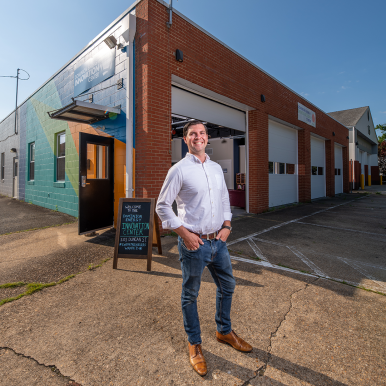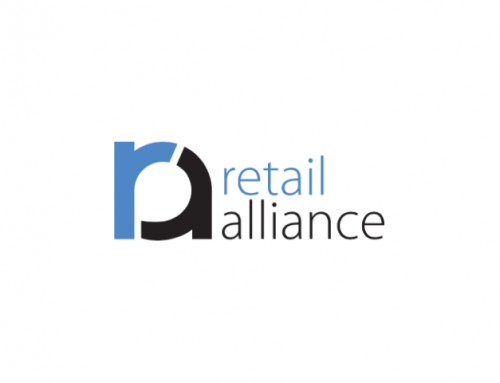From Virginia Business JW CATERINE
During a virtual meeting of Virginia energy stakeholders in late June, Dominion Energy Innovation Center Executive Director Adam Sledd posed a question: How can Virginia become a leader in climate technology innovation?
That’s the kind of ambitious vision that Sledd hopes will carry DEIC to victory in the second and final stage of the U.S. Small Business Administration’s 2023 Growth Accelerator Fund Competition, which is aimed at building strategic partnerships in the entrepreneurial ecosystem, particularly in underserved communities.

Dominion Energy Innovation Center Program Director Braden Croy is working on plans for a spring 2024 statewide summit on energy entrepreneurship. Photo by Matthew R.O. Brown
In June, DEIC — an Ashland-based entrepreneurship support organization for energy-related startups — and the Virginia Small Business Development Center’s International Business Development program at George Mason University — an initiative helping startups and small businesses reach international markets — were among 40 accelerators nationwide to make it past the SBA competition’s first stage, which came with a $50,000 prize. This summer, both organizations are in the running for awards of up to $150,000 in the second stage. Winners are expected to be announced by Oct. 1.
“We won that first phase because we have a great group of partners,” Sledd says, “and we have this clear goal about how we want to support entrepreneurs decarbonizing the economy.”
A nonprofit spinoff of Activation Capital, DEIC’s partners also include Dominion Energy Inc., Virginia Bio, Hanover County and Ashland. DEIC previously won the stage one award in the 2021 competition. This time, Program Director Braden Croy says, DEIC is focusing its proposal on a spring 2024 statewide summit on entrepreneurship in the energy industry.
At George Mason, Virginia SBDC’s IBD program is centering its competition proposal around efforts to help STEM-related small businesses expand into international markets.
“We’re looking to work with more companies and underserved communities, particularly Black-owned businesses, with this funding,” says Aaron Miller, Virginia SBDC’s director of international business development. “We want to create a model and approach that we can share with other SBDCs around the country.”
While Virginia ranks 13th among states for GDP, it’s ranked 24th for exports of trade goods. The IBD program aims to boost Virginia exports by teaching startups how to navigate international markets, Miller says.
“We bring that technical assistance directly to them, whether it’s developing an international business plan [or] making sure that they’re focused on the right markets,” Miller says. “It all comes down to resource allocation for a small business, making sure that you’re investing in international expansion [at] the right time.”






